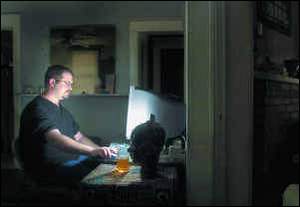The New York Times eats it own over negative Iraq reportage...
I'm enjoying an inordinate amount of glee over this article in the Times. In a rambling, incoherrent, hem-hawing sort of way, Katherine Q. Seelye of the New York Times examines the backlash against a damn-near ubiquitous "body-count" style of reporting:
Editors Ponder How to Present a Broad Picture of IraqSome editors expressed concern that a kind of bunker mentality was preventing reporters in Iraq from getting out and explaining the bigger picture beyond the daily death tolls.
She goes on to secure a couple of key quotes from Associated Press executive Mike Silverman:
"Other editors said they get calls from readers who are hearing stories from returning troops of the good things they have accomplished while there, and readers find that at odds with the generally gloomy portrayal in the papers of what's going on in Iraq," he said.
It's about time someone acknowledged the obvious.
"I was glad to have that discussion with the editors because they have to deal with the perception that the media is emphasizing the negative," he said.
The problem isn't a matter of mere "perception," Mike.
"It is unfortunate that the explosions and shootings and fatalities and injuries on some days seem to dominate the news."
Considering the near-constant reporting of blood and gore above the fold of my newspaper, the lede stories on the nightly news, and cable news as well, the word "unfortunate" doesn't even begin to describe the problem.
"The main obstacle we face," he said, "is the severe limitation on our movement and our ability to get out and report. It's very confining for our staff to go into Baghdad and have to spend most of their time on the fifth floor of the Palestine Hotel," which is home to most of the press corps. The hotel was struck by a tank shell in 2003, killing two journalists.
Those "severe limitations" don't seem to be stopping this guy, arguably the most popular American reporter in Iraq among activated units and veterans alike.
Thank you, Ms. Seelye, for bringing this journalism insider debate into the public light. It's encouraging. At this point, this vet will take what he can get.
UPDATE: Audio of the recent Michael Yon interview is available here.
Greyhawk weighs in on this remarkable (and all too rare) NYT story.

